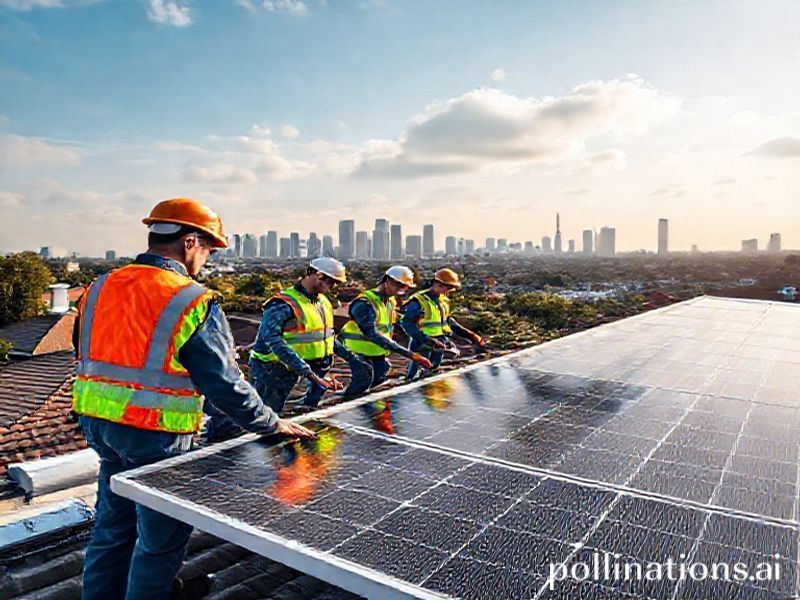Power to the People: Why Energy Company Obligations Are Lighting Up the Internet
# **Power to the People: Why Energy Company Obligations Are Lighting Up the Internet**
In a world where memes spread faster than wildfires and trends change quicker than TikTok dances, there’s one topic that’s been quietly gaining traction across the globe: **Energy Company Obligations (ECOs)**. No, it’s not the latest Netflix binge-worthy drama or a viral dance challenge—it’s a policy that’s sparking conversations (pun intended) about energy efficiency, climate change, and who’s footing the bill for a greener future. But why is this wonky-sounding policy suddenly trending? Let’s break it down.
### **What’s the Buzz About ECOs?**
Energy Company Obligations are government-mandated programs that require energy companies to help reduce carbon emissions, improve energy efficiency, and make energy more affordable for low-income households. Think of it as a nudge (or a shove, depending on who you ask) for energy companies to do their part in fighting climate change while also tackling fuel poverty.
These programs have been around for years, but they’ve recently surged in popularity (or notoriety, depending on your perspective) because governments worldwide are ramping up their climate commitments. The UK’s ECO scheme, for example, has been a hot topic lately as the government has announced new iterations of the program, aiming to upgrade millions of homes with better insulation, heating systems, and renewable energy solutions.
### **Why Is This Trending Now?**
1. **Climate Change Anxiety (But Make It Policy)**
With wildfires, hurricanes, and heatwaves dominating headlines, people are increasingly aware of the need for action on climate change. ECOs are one of the ways governments are trying to make a dent in emissions, and the internet is taking notice. Social media is buzzing with debates about whether these policies are effective, fair, or just another bureaucratic headache.
2. **The Cost of Going Green**
One of the biggest talking points is who pays for these upgrades. Energy companies are often the ones footing the bill, but they pass some of those costs onto consumers. This has sparked heated discussions about whether ECOs are a fair way to fund green initiatives or just another way for corporations to hike up prices.
3. **Fuel Poverty in the Spotlight**
The COVID-19 pandemic and the ongoing cost-of-living crisis have put a harsh spotlight on fuel poverty. ECOs are designed to help low-income households cut energy bills by making homes more energy-efficient. But critics argue that the programs don’t go far enough or are too slow to roll out, leaving vulnerable people in the cold (literally).
4. **The Rise of the “Green Grinch” Meme**
Let’s be real—internet culture loves a good villain, and energy companies are often cast as the “Green Grinches” in this narrative. Memes and viral posts mocking energy companies for dragging their feet on ECOs have popped up everywhere, turning a dry policy topic into a relatable, shareable moment.
### **Cultural Context: The Battle for a Greener Future**
ECOs are part of a broader cultural shift where sustainability is no longer just a buzzword—it’s a lifestyle, a political battleground, and a meme goldmine. From Greta Thunberg’s school strikes to the rise of “flight shame,” people are demanding action on climate change, and governments are responding with policies like ECOs.
But here’s the catch: while the internet loves a good rallying cry, translating that into real-world policy is messy. ECOs are a prime example of how well-intentioned policies can become tangled in bureaucracy, corporate interests, and public skepticism. The debate around ECOs reflects a larger cultural tension: how do we balance environmental responsibility with economic realities?
### **Social Impact: Who Wins and Who Loses?**
The social impact of ECOs is a mixed bag. On one hand, they’re helping millions of households cut energy bills and reduce their carbon footprint. On the other, critics argue that the programs are too slow, too expensive, or too easily gamed by energy companies.
One thing is clear: ECOs are forcing a conversation about who should bear the cost of the green transition. Should it be energy companies? Governments? Consumers? The internet is divided, but one thing’s for sure—this debate isn’t going away anytime soon.
### **Why This Topic Matters**
ECOs might not be as flashy as the latest viral trend, but they’re a microcosm of the bigger battles we’re fighting over climate change, economic fairness, and corporate responsibility. As the world grapples with how to transition to a greener future, policies like ECOs will continue to spark debate, memes, and maybe even real change.
So, the next time you see a post about ECOs trending, remember: it’s not just about policy—it’s about the future we want to live in. And if that future includes fewer energy bills and more memes, well, sign us up.
—







